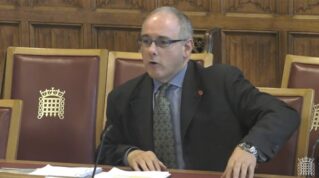The government is pleading with traineeship providers to rapidly boost their recruitment as new figures suggest plans to triple the number of starts on the pre-employment programme will flop for a second year in a row.
In its latest attempt to spur training providers into action, the Education and Skills Funding Agency reminded the sector this week that local authorities have a statutory duty to identify all 16- and 17-year-olds who are not in education, employment or training (NEET), and support them into training.
The agency asserted that traineeships are a “great” option for the disadvantaged. Officials said if providers are not already working with their local authority to recruit young people, “we will be delighted to facilitate introductions to promote productive sustainable relationships that will both increase your recruitment and raise your profile as a successful traineeship provider”.
Ministers had hoped to achieve 43,000 starts on the traineeships scheme in 2021/22 after investing an additional £126 million through the chancellor’s budget last year.
This was on top of a £111 million investment to achieve 36,700 traineeships in 2020/21 – a target that was missed by more than half, with only 17,400 starts, and which resulted in the Department for Education handing £65 million of the funding back to the Treasury.
The chancellor’s goal was to triple the number of starts on the pre-employment programme after 14,900 were achieved in 2019/20.
The DfE blamed last year’s embarrassing result on several delays in running two separate procurements – one for 16-to-18 contracts and another for 19-to-24s – to increase training provider capacity to deliver the scheme.
A similar underspend is looking likely for this year as figures published last week show just 8,900 traineeship starts in the first half of 2021/22 between August to January. This was a one per cent increase on the 8,800 achieved in the same period in 2020/21, and a six per cent rise on the 8,400 recorded in 2019/20.
Traineeships are eligible for 16-to-24-year-olds and training providers are funded by the ESFA to deliver pre-employment training and arrange unpaid work placements of at least 70 hours. They can last from six weeks to 12 months.
Traineeships used as a ‘sticking plaster’
David Marsh, chief executive of national training provider Babington, told FE Week most employers are currently not seeing traineeships as “easily workable” partly due to the need for the long work placement when they are still trying to recover from Covid-19’s impact on their business.
Other providers previously said other paid employment schemes, such as Kickstart, have displaced many traineeship opportunities.
Responding to the ESFA’s latest plea for more traineeships, Toby Perkins MP, Labour’s shadow skills minister, said: “The government has used traineeships as a ‘sticking plaster’ to make up for their lack of a national strategy.
“It is extraordinary that the funds allocated for this initiative will be sent back to the Treasury at a time of skills shortage.”
The continued sluggish take-up of traineeships comes despite the government reforming funding rules, which included increasing the funding rate for 19-to-24 traineeships by 54 per cent, from £970 to £1,500, and opening them up to people who already hold a level 3 qualification.
Employer cash incentives of £1,000 for each traineeship learner they take on were also introduced in 2020 and can be claimed up to the end of July 2022.
Some providers that have delivered traineeships since their launch in 2013, such as Babington, missed out on funding in the 19-to-24 tender and can now only deliver 16-to-18 traineeships.
Marsh said taking adult traineeship contracts away from established providers “was not sensible” as the programme is not easy to deliver and takes a long time to perfect. He added that having different funding contracts for different age groups is causing a problem for employers.
He told FE Week that his provider is now working “strategically” with some large employers to “make traineeships work for them”.
“We are seeing some real progress, but it takes time,” he added.
Jane Hickie, chief executive of the Association of Employment and Learning Providers, called for the employer work placement payment to be extended beyond July 2022 “to ensure businesses continue to be incentivised to take on trainees”.
She also urged the government to introduce “learner incentives” for trainees to increase demand in the programme, considering that traineeships are unpaid.

















Your thoughts